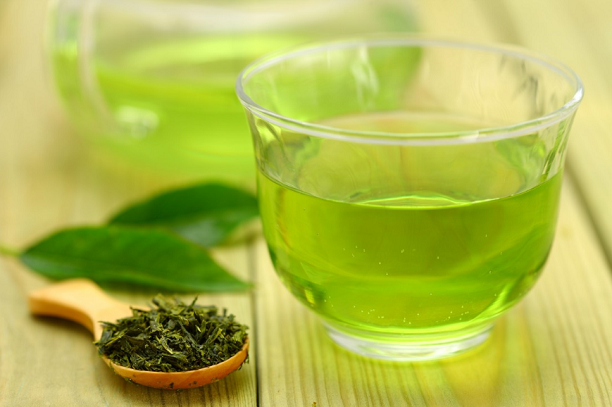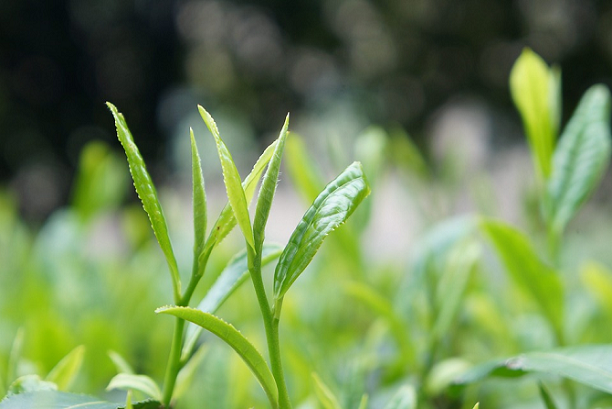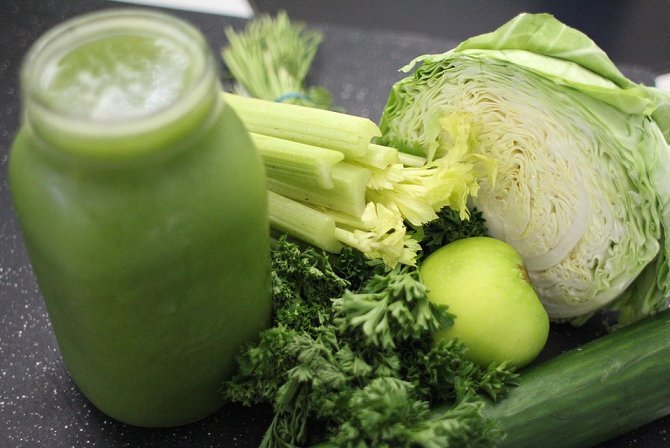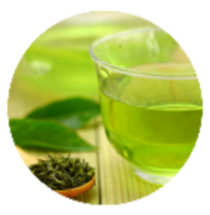Do you keep hearing that green tea is a ‘health’
drink and it has many benefits to drinking it daily?
I keep hearing these rumors too. And like you, I didn’t exactly know what green tea actually does ‘health-wise’ for us humans!
I first heard about green tea to help you lose weight a few years ago but I got side-tracked by other dieting information and put the concept of green tea to lose weight to one side.
Fast forward a few years and I’m still hearing about people drinking green tea because of its amazing benefits. This is around about the same time that I started this blog, so I decided to find out all there is to know about this so-called ‘super-food’ health beverage and post the findings here for you to read too.
So this blog post is dedicated to sharing all I could find out about the health benefits of green tea, of which I came up with a nice lengthy list of its 21 amazing health benefits.
What Exactly is Green Tea?

Green tea originally came from China, but it is now well produced and circulated in other countries in Asia.
Therefore green tea has always been a popular beverage in Asia but has only become of interest to the rest of the word over recent years. The main reason it has become so popular in Western countries and Europe is that we are getting more and more health-conscious, not just with food but also with healthier beverages too.
I liken green tea in the same group as the popular herbal teas – so if you like herbal teas, then you’ll probably like green tea.
However, green tea now comes in many different forms for you to consume, such as:
- Tea bags
- Loose leaf
- Powdered
- Capsules
1. Bioactive Compounds
The main health benefit of green tea is that it is manufacturered from Camellia sinensis leaves which have not been put through a similar wilting and oxidation process which is used to make black and oolong teas.
So what this means is that it is the preparation of the green tea which makes it such a powerful drink because it doesn’t destroy the bioactive compounds through rigorous extraction and storage time. [Source]
So the active/live compounds found in the green tea leaf whilst growing in the field, actually make it to the final drink!
What are Bioactive Compounds?

I can’t go into this in great detail, because it gets very ‘science-y’ and complex as apparently there’s approximately 200 bioactive compounds found in green tea. But here’s a summary of what the most important bioactive compounds are which you should know about and how they will benefit you health-wise.
Bioactive compounds are ‘active’ ingredients which include:
- Vitamins K, B2 & E
- Polyphenols (antioxidants)
- Amino Acids
- Theanine
- Caffeine
As I’ve just said, I know this is all very ‘science-y’, and if you don’t have a science-like mind (like me!), then don’t worry to much about the active, healthy compounds, but just realise that all teas have a certain amount of stimulants in them too, and green tea is no exception.
Stimulants in Green Tea:
- Caffeine
- Theobromine, and
- Theophylline
Just so you know: The highest amount of caffeine is in powdered green tea. So if you want less caffeine in your green tea, opt for green tea bags or loose leaf as it’s more of a natural source.
Again, this all has to do with the extraction and preparation procedure of the green tea before it hits the shelves in the shops.
… not how you prepare your green tea at home!
2. High Antioxidant Levels
The biggest, and most important, compound in green tea are polyphenols – which are a class of anitioxidants.
I’m sure you’ve heard of antioxidants before and the benefits of them, but here are the specific antioxidants found in green tea:
- Cetchins
- EGCG
- Flavanols
- Theanine
I’ll go over each of the antioxidants below as they arise with their associated green tea health benefits.
3. Weight Loss

One of the most popular health benefits of green tea is the ability to help you lose weight.
How does it do this?
According to many different studies, the caffeine and flavonoids in green tea are the key ingredients to help boost weight loss.
These two compounds help to:
- Raise your metabolic rate
- Improve insulin activity, and
- Increase fat oxidation
There have been studies where women drank green tea without changing any other part of their diet and lost weight, with one specific study claiming that women on average lost 2.9 pounds over a 12-week period.
However, I would take these studies with caution, as when people are specifically ‘assigned’ to a study such as this, then the study itself can have a placebo effect on their behaviour – meaning that they unconsciously act on their best behaviour by eating healthier than what they normally would.
In conclusion: Green tea for weight loss can be effective but only as part of a healthy eating and exercise journey. I personally haven’t found any concrete study trials and evidence to convince me otherwise.
Related Reading: Green Tea for Weight Loss: 9 Simple Green Tea Diet Tips To Get You Into Shape Fast!
4. Green Tea Detox For Health

Green tea can be a very effective contributor to an overall body health detox.
The whole point of a body detox is to get rid of all the chemical impurities which are still lying around inside your body. These impurities can make your body feel sluggish and slow you down – therefore doing a 7-day, 14-day or even 28-day detox is a good idea to literally ‘cleanse’ your body of all the junk and processed food which you’ve eaten.
So how and where does green tea fit into all of this?
Well, green tea is one of the few ‘pure’ beverages to drink. So when you’re doing a detox, then you know that you’ll not sabotaging your detox efforts by ‘drinking’ a chemical-like substance – because green tea is very natural (as described above in the bioactive compounds section).
Related Reading: Easy Green Tea Detox: How To Detox With Green Tea for a Healthier You!
There are many different types of detox to do, and I believe you should choose one which you know you can stick to the longest and see it out until the end (7 days, 14 days etc.). But drinking a few cups of green tea a day as your chosen drink – alongside plenty of fresh, cool water – is a very good choice for two reasons:
#1 Rids Free Radicals: Green tea includes an antoxidant called EGCG (Epigallocatechin gallate) which powerfully helps eliminate free radicals. Free radicals are basically parasites in the body and cause damage to cells. This cellular damage can cause diseases such as cancer and also speeds up the aging process (wrinkles, sagging etc).
#2 Increases Metabolism: As mentioned above, green tea has various antoxidants which help speed up metabolism. This also helps eliminate chemical impurities at a slightly faster rate as well as burning off any unwanted fat for weight loss during your detox.
There are also aesthetic health benefits of green tea which can help with your skin and hair…
5. Green Tea for the Skin

Because green tea contains so many natural ingredients and antioxidants, it can only be a good thing for your skin too.
You need plenty of water and antioxidants to nourish your skin, therefore making green tea a great contender.
How Drinking Green Tea Helps Your Skin
EGCG: This antioxidant contains ‘catechin’ which helps reactivate cells. Good to help with those fine lines and wrinkles.
Catechins: The same antioxidant also a anti-inflammatory which help reduce swelling, redness and irritation.
How Using Green Tea Externally Helps Your Skin
You can also apply green tea directly onto your skin by either using home-made recipes with green tea or you can buy green tea skin care products.
Example of a home-made recipe:
Stir together 4 ounces of green tea (cold) with 2 oz of pure pomegranate juice, 1 tablespoon aloe vera gel, and half a teaspoon of cornstarch. Warm-up the ingredients in the microwave for 1 minute. Let cool and transfer to a clean cosmetics container.
Apply a small amount of the gel to skin every night before bed.
Examples of a green tea skin care products:
You can get green tea extract skin care products in many places, but you can’t get passed Amazon.
They have a good green tea range, and are a trusted brand to purchase online from.
>> Innisfree Green Tea Balancing Skin Care Set
Related Reading: 9 Exciting Benefits of Green Tea For Your Skin & Face To Get That Glow!
6. Helps Clear Up Acne
Yup, green tea is also good for acne!
As we’ve already read, there anti-inflammatory antioxidants, called catechins, in green tea. These catechins help reduce any inflammation.
And don’t forget about the Vitamins K, B2 and E in green tea. These vitamins are good to feed and nourish the skin.
Here’s a lovely little story about a teenage girl who cured her very aggressive acne with green tea and raw honey:
… When Robles went back home, she bought a box of green tea at her local 99-cent store. She made the green tea drink and stirred some raw honey into it and continued to drink this green tea and honey combination three times a week. Robles also whipped up her own face mask by emptying a couple of green tea bags into a bowl and mixing the leaves together with the raw honey. “I’d leave the green tea mixture on for at least thirty minutes,” she says. “The maximum would be around two hours whilst I was just relaxing around the house.” Robles did this procedure about three times each week for a couple of months and then eventually slowed it down to once a week after she started seeing amazing results.
7. Green Tea for Baggy Eyes
It’s because of those wonderful anti-inflammatory catechins that helps reduce baggy or puffy eyes.
Instead of cucumbers, try green tea bags!
The catechins inside the green tea bags cools down and restricts the blood vessels and capillaries, therefore helping to reduce the inflammation.
How to use:
- You steep to tea bag in boiling water, as if you were going to drink it.
- Let the tea bags cool down. Even put them in the refrigerator for 15 minutes.
- Place them over your eyes (or the most baggy, puffy area) and rest for 15-30 minutes.
8. Green Tea for Hair

When it comes to green tea for the health of your hair, it has benefits by both drinking the tea (vitamins) and also applying it directly onto the hair.
This is what the combination of bioactive compounds do for hair:
Promote Hair Growth: Vitamin B & the amazing EGCG antioxidant catechin is known to help hair growth from the root when the green tea is applied directly onto the scalp.
Prevent Split Ends: Vitamin B & Theanine (amino acid), softens the ends of hair, therefore preventing the hair follicle to split.
Add Moisture & Shine: With all the vitamins, minerals and amino acids – these all help seal-in moisture and give it a shiny, sheen look.
Hair Elongation: The main cause of baldness is when the hormone DHT (Dihydrotestosterone) is active which prevents proteins, vitamins and minerals from keeping the hair follicles healthy and allowing hair to grow. It’s been researched and publicised that caffeine, which is also present in green tea, helps to counteract and block the DHT hormone from it’s destructive ways.
Related Reading: 5 Healthy Ways Green Tea Can Rejuvenate Hair
9. Green Tea for Your Teeth
The health of your teeth is important which is why you should brush them twice a day, but can drinking green tea really help with the health of your teeth and gums?
Well, according to a a study carried out by researchers in 2016, they apparently ‘indicated’ (so nothing conclusive) that this little green beverage may lower the bacteria in our mouth. If this is the case, then a lower percentage of oral bacteria will give us healthier gums and teeth and also reduce the risk of mouth cancer. [Source]
10. May Help Prevent Bowel Cancer
It is believed that a green alkaline diet can help cure or prevent some cancers, and that drinking green tea can help be part of the said alkaline diet. This is a pretty bold statement to make and there are some studies to suggest this could be the case.
The substance in green tea that researchers think is most helpful is:
- Catechin (EGCG – epigallocatechin-3-gallate) and
- Caffeine and theanine
This is because researchers believe that the antioxidant EGCG can kill of cancerous cells and the other vitamins and amino acids can help promote a good immune system.
However, the Cancer Research UK and other cancer-related institutions are still not convinced by green tea as an alternative therapy for cancer. [Source]
11. Controlling Diabetes
It is believed that green tea can help control diabetes for these reasons:
- Weight loss, as discussed above in No. 3. If you’re overweight and have diabetes, it’s always good to try and lose those pounds.
- Those catechins help reduce the effect of insulin resistance
But of course, green tea alone won’t help get rid of or control diabetes. You have to control diabetes, along with prescribed medicine from your doctor/physician, with a good balanced diet specifically to help control diabetes – and green tea can be one part of this diet.
12. Helps Heart Disease
At first researchers found that the amazing EGCG antioxidant can help break up and dissolve potentially dangerous protein plaques found in the blood vessels.
However, in order for this to happen you have to drink copious amounts of green tea – which is definitely not recommended (remember, it still has caffeine it). So it’s back to the drawing board for the correlation between green tea helping with heart disease [Source].
13. Lowers Cholesterol
Advocates say green tea’s heart-healthy benefits are due in part to a large concentration of polyphenols, which block the absorption of cholesterol in the gut. However, many argue that any effect that is beneficial to lowering cholesterol would be minute.
So this seems a similar situation of the benefits of green tea for heart disease.
14. Lowers Blood Pressure
Again, no real concrete evidence to suggest that green tea lowers blood pressure all by it’s little self.
It’s all part of a healthy, balanced diet to help prevent these major diseases.
Drinking green tea as a substitute for alcohol or fizzy high-sugar drinks will go along way to help lower your blood pressure though!
15. Green Tea Helping Arthritis?
As we discussed above, the antioxidants including catechins help reduce inflammation, and the Arthritis Foundation tends to agree with this.
However, they don’t give any of their own research or conclusive evidence of this to help with arthritis [Source].
16. Fights Urinary Tract Infection
According to Lester A. Mitscher, Ph.D., in his book, which is aptly named “The Green Tea Book”, a research team from Minnesota University’s Public School of Health discovered that urinary tract cancer was not as common in people who drink green tea as it is with non-tea drinkers.
17. Helps Relieve Allergies
Researchers in Japan identified that the EGCG compound found in green tea, through laboratory tests, blocks a key cell receptor which plays a significant role in producing allergic responses. It is hopeful that this can be further proven with more research and tests to help prevent colds and allergies such as hay fever by acting as an antihistamine.
Their study can be seen in the print issue of the Journal of Agricultural and Food Chemistry.
18. Reduce Asthma Symptoms
Green tea has been known to help improve respiratory health. This is done via the theophylline caffeine stimulant found in green tea. Theophylline is a known bronchodilator drug which patients use to help open up their airways within the lungs which in-turn relieves the symptoms of asthma.
18. Reduce Depression
A study from the University of San Francisco found that the polyphenols in green tea can boost and encourage the release of the important brain substance dopamine in the areas where it’s needed. Dopamine is a signalling substance in the brain circuits that are crucial to creating positive mood states.
Whilst this is great news, I believe (and it’s a known fact) that the best way to get dopamine is through exercise (or any type of movement), especially outdoors, as this helps tremendously with relieving depressive symptoms.
So in order to help relieve depression, it’s best to follow a high-in vitamin and essential amino acids diet (basically lots of healthy fresh vegetables and fruit) and drink green tea say twice a day – in place of your third cup of coffee or black tea?
And make sure to do at least 15 minutes of movement per day, preferable outdoors, such as a 10-15 minute walk around the block!
20. Relieve Stress
It’s widely known that herbal teas have a calming effect and so it’s no surprise that green tea can be very effective to help relieve stress and anxiety.
The ‘L-theanine’ which is an amino acid found in the green tea leaves, provides strong calming effects and can be used to combat anxiety and stress and helps relaxes your mind. It does this by promoting alpha waves in the brain.
21. Brain Booster
Researchers are finding more and more health benefits of green tea in all kinds of areas – and the latest research is finding a correlation between green tea and boosting the cognitive functions and memory of the brain.
Today, the research team at Switzerland’s Basel University have reported they have scientific evidence that green tea extract improves our cognitive performance, especially in the working memory.
This is done by the L-theanine amino acid, as above for relieving stress. L-theanine has psychoactive traits which cross the brain-blood barrier. It also helps to improve the activities of dopamine, alpha-wave, GABA and serotonin to lower mental stress.
And lastly, the L-theanine amino acid also helps to reduce age-related cognitive deterioration.
Summary
As you’ve just read there are many health benefits of green tea, however, not all of them are equal.
Green tea for general health & beauty?: Yes, definitely. I have started to drink green tea for it’s amino acids, multi-vitamins and antioxidant benefits for both internal and external health.
I’ve also started looking at green tea skin and hair products. Such as green tea face masks and green tea shampoos.
Green tea to help combat or control major diseases?: Maybe not. I think it’s pretty naive and foolish to think that green tea is so powerful that it can help prevent, control or even cure any major diseases all by it’s self.
It’s all about living a healthy lifestyle and eating and drinking foods in moderation. And of course, paying a visit to your doctor/physician if you have any unwanted or unnatural symptoms.
What do you think?
What’s your view on green tea for health and for skin care?
Disclaimer: This information is intended for informational use only. Please refer to your GP, Doctor or Physician with any medical problems you may have.

